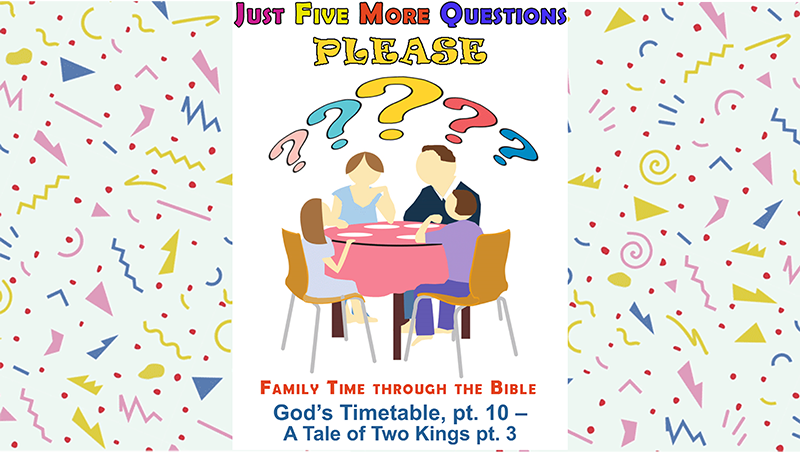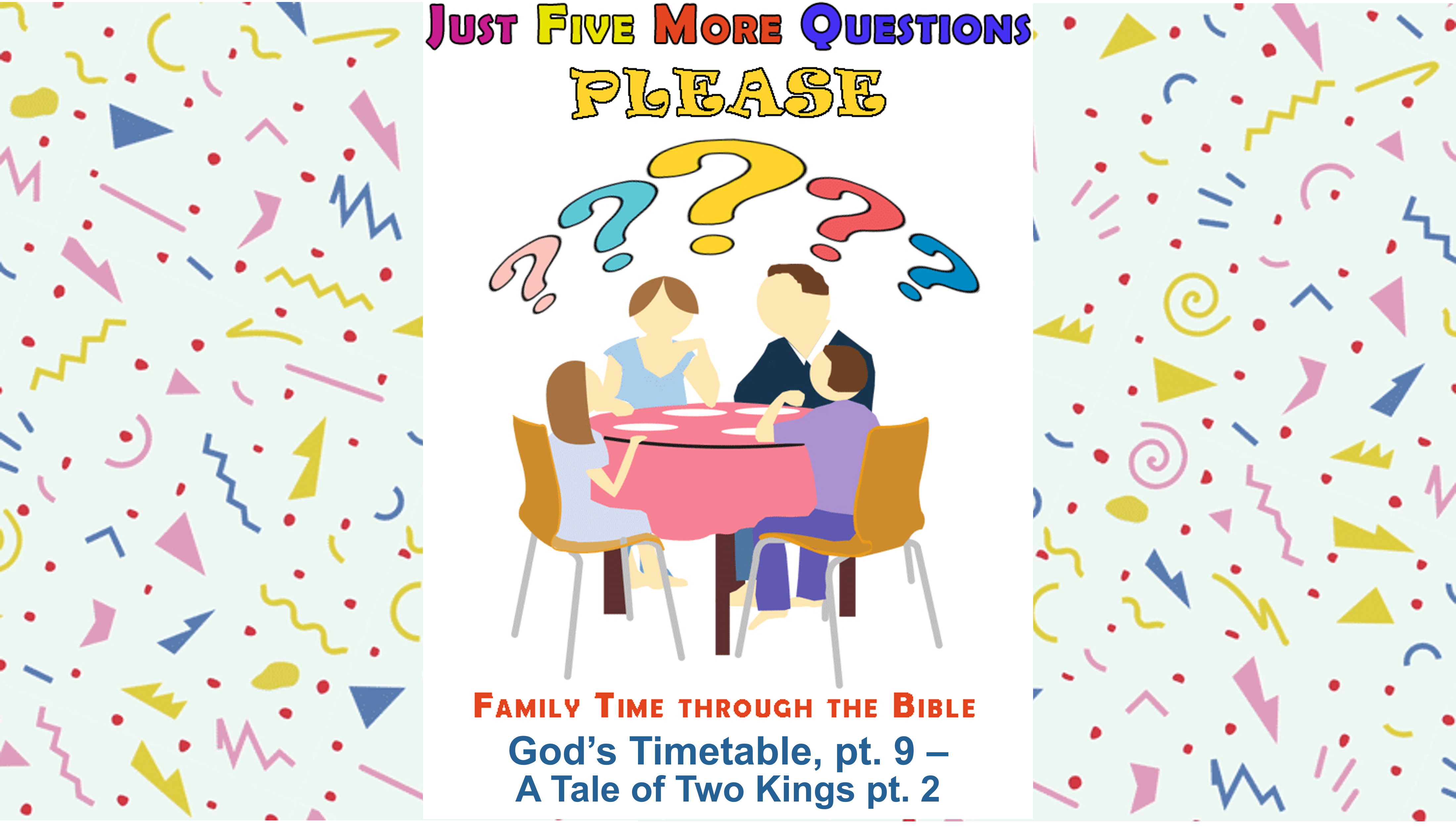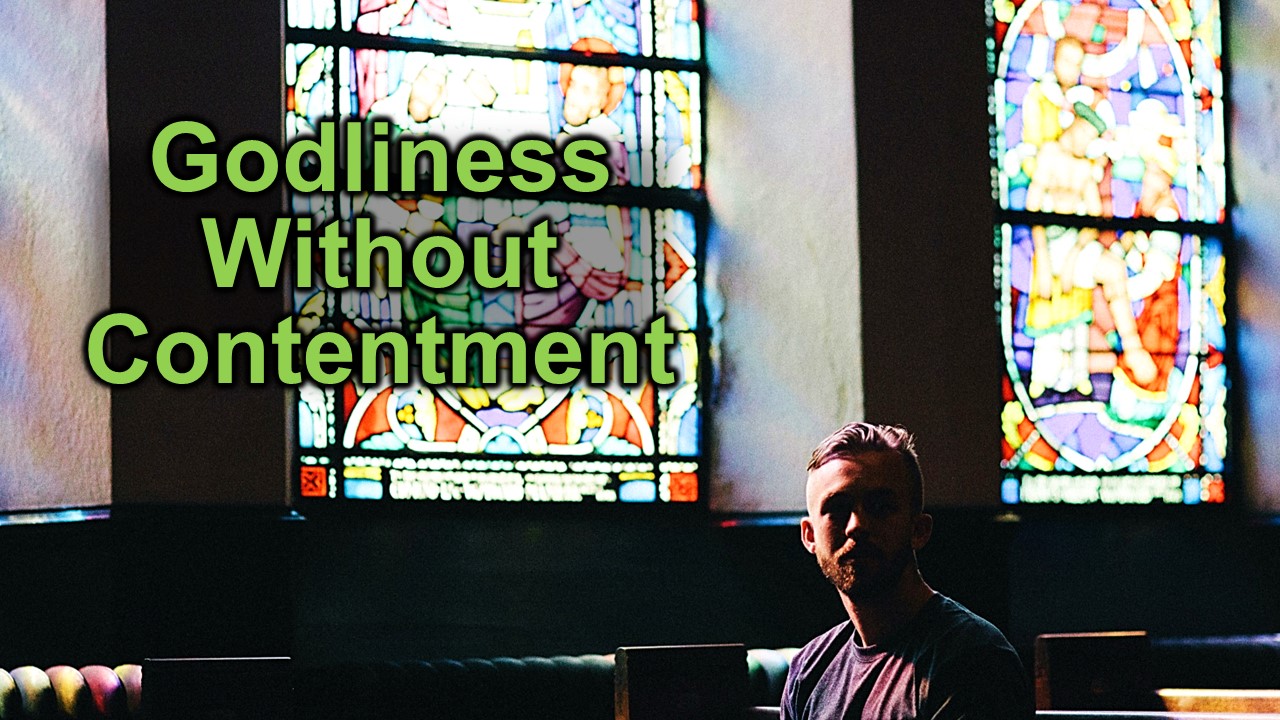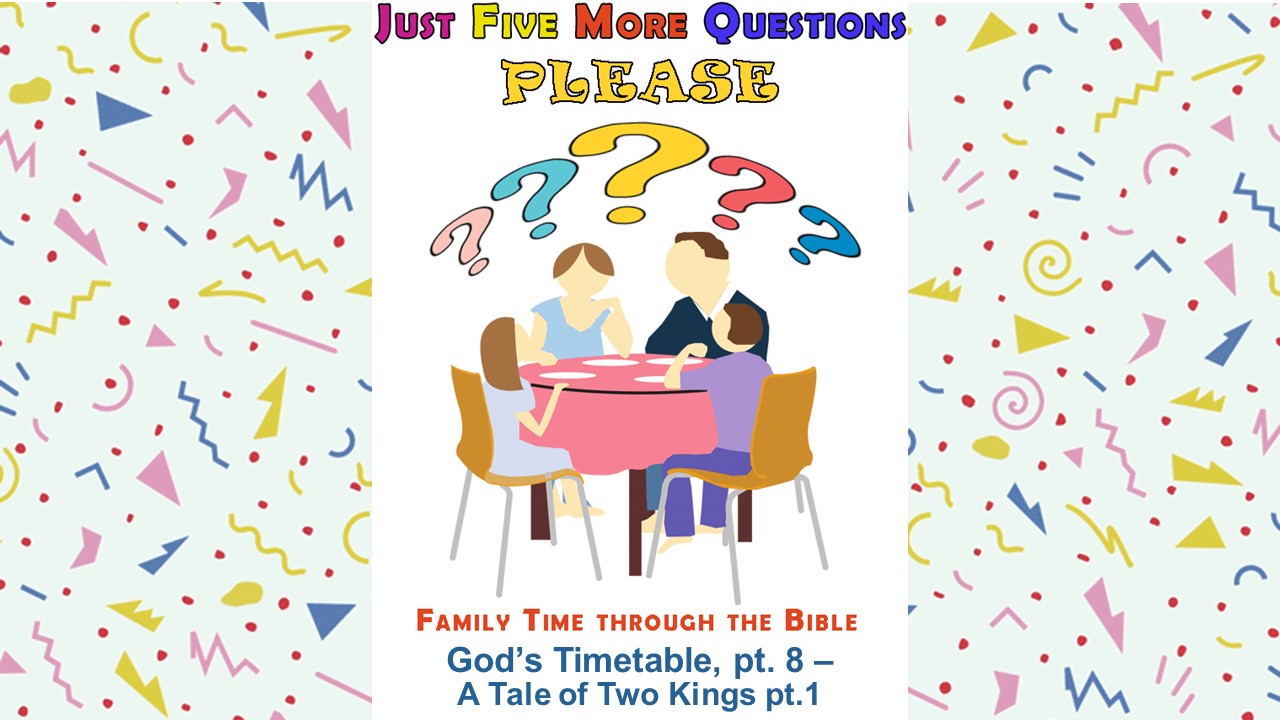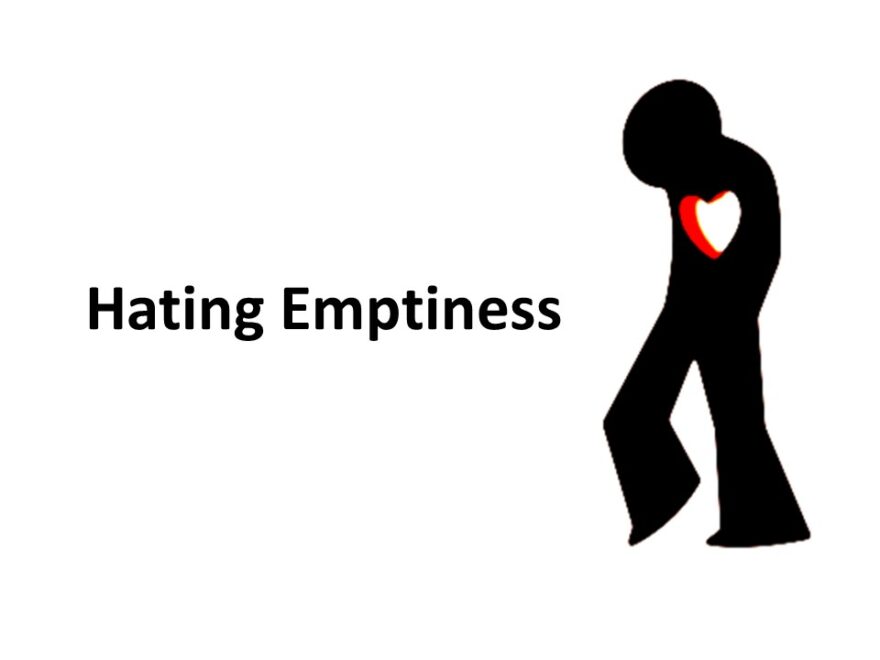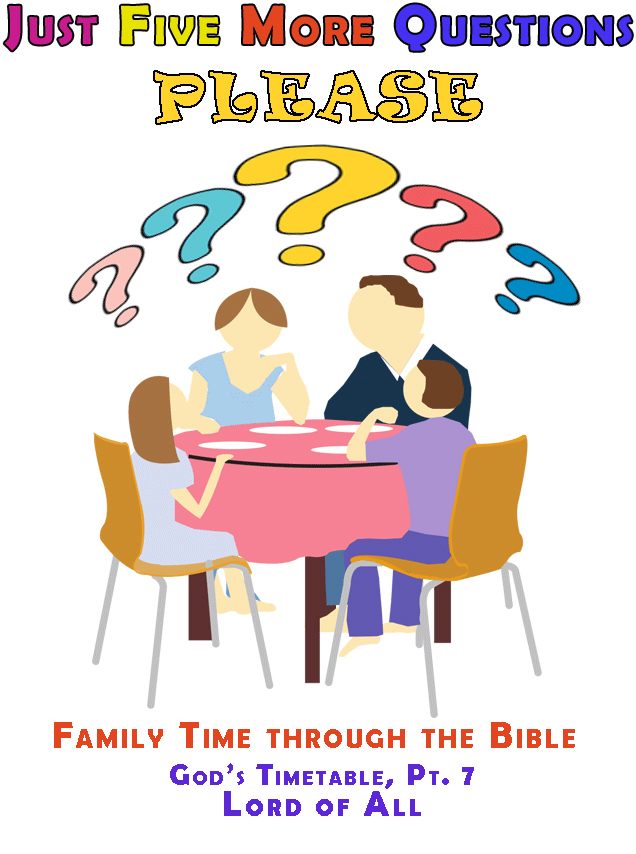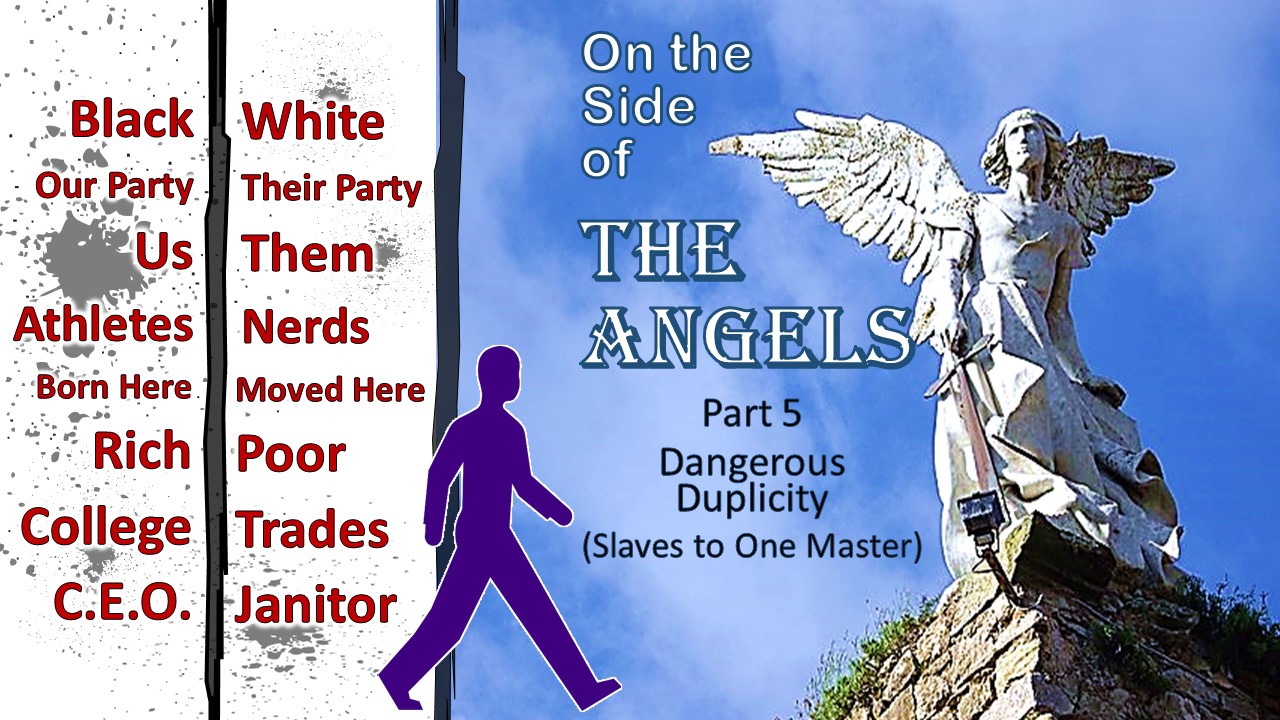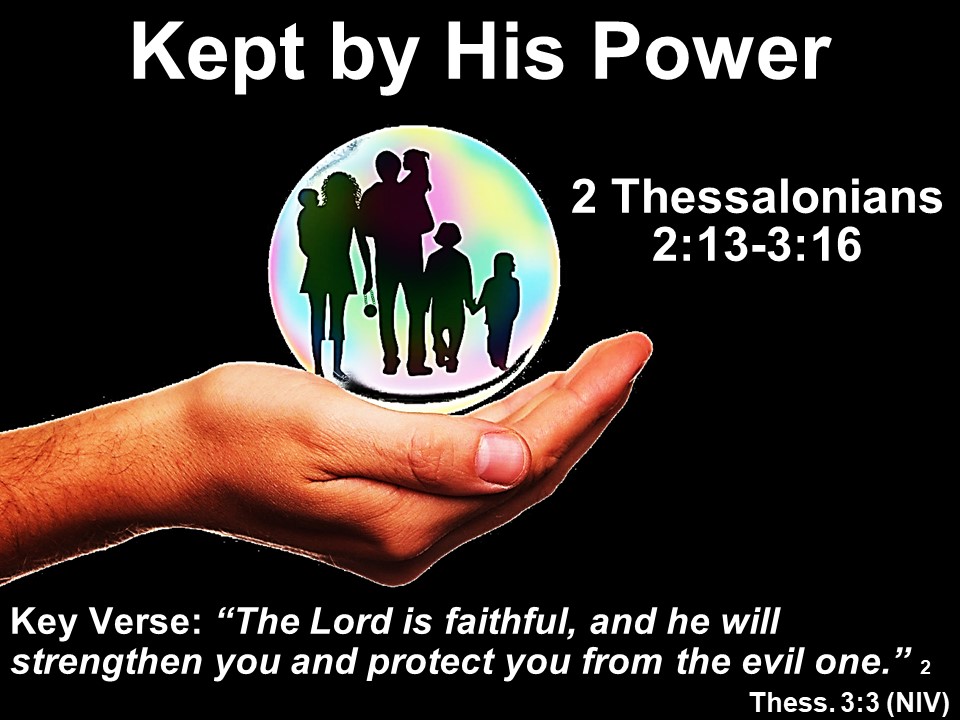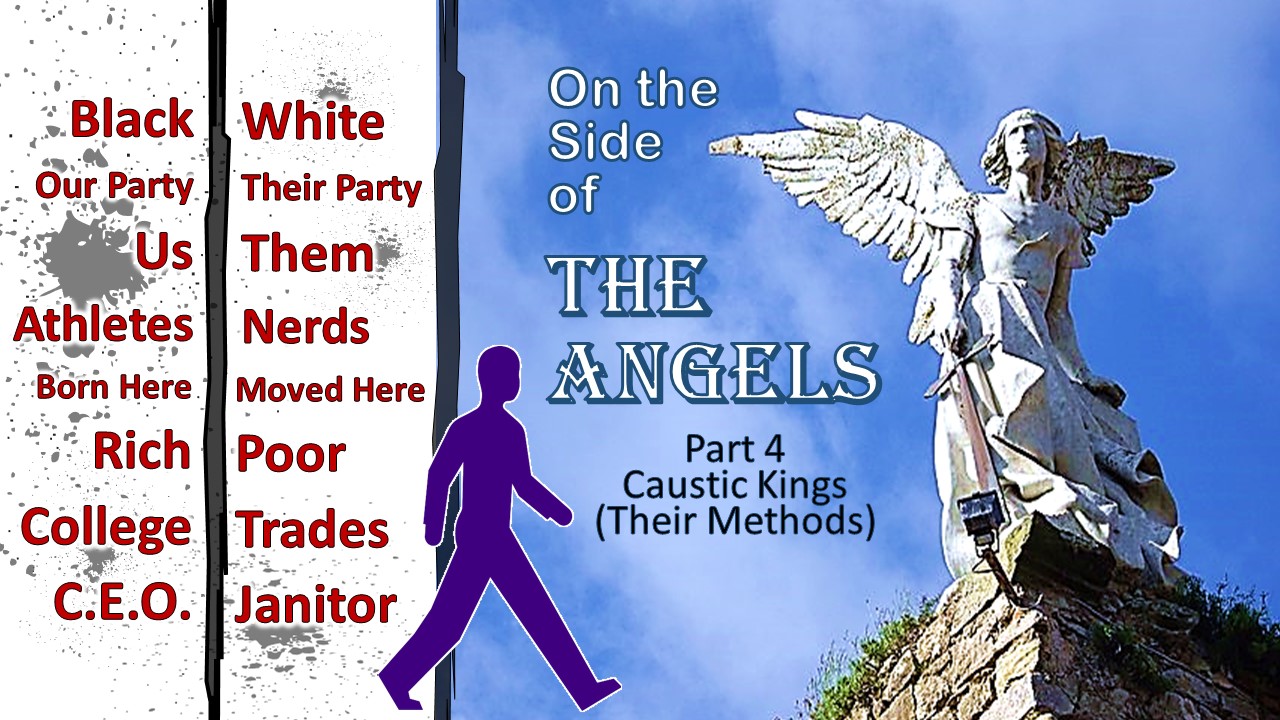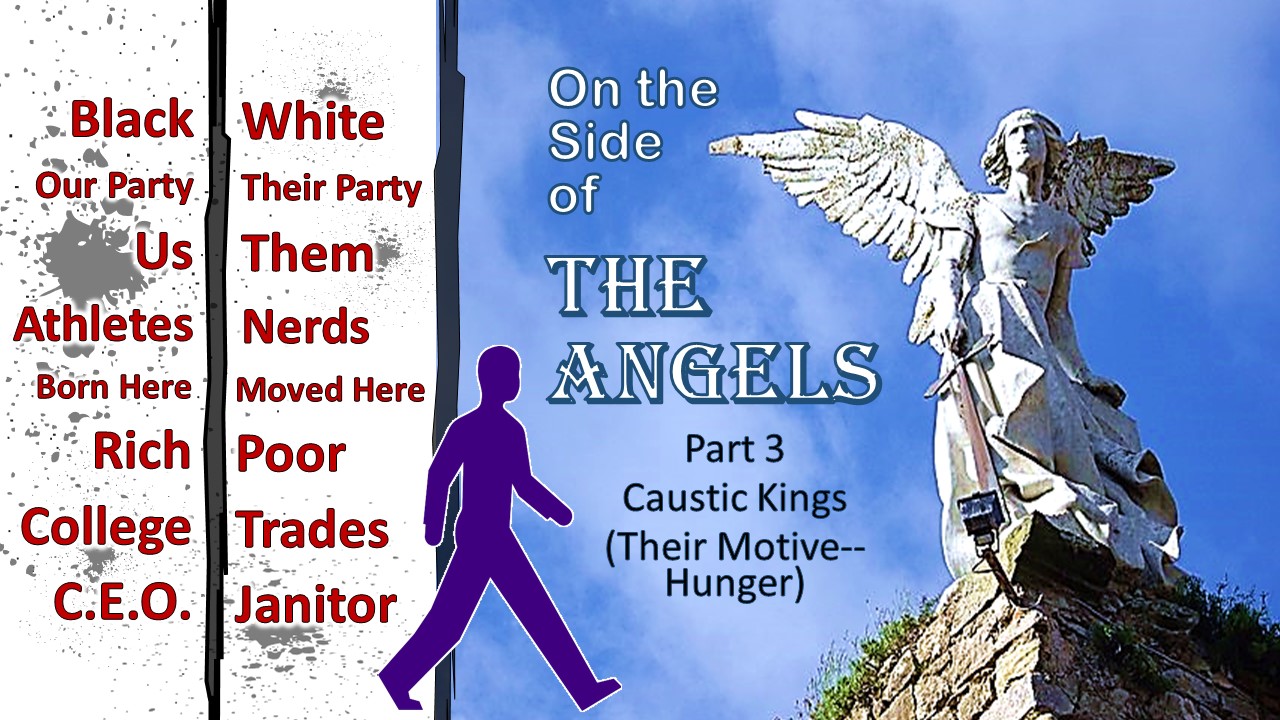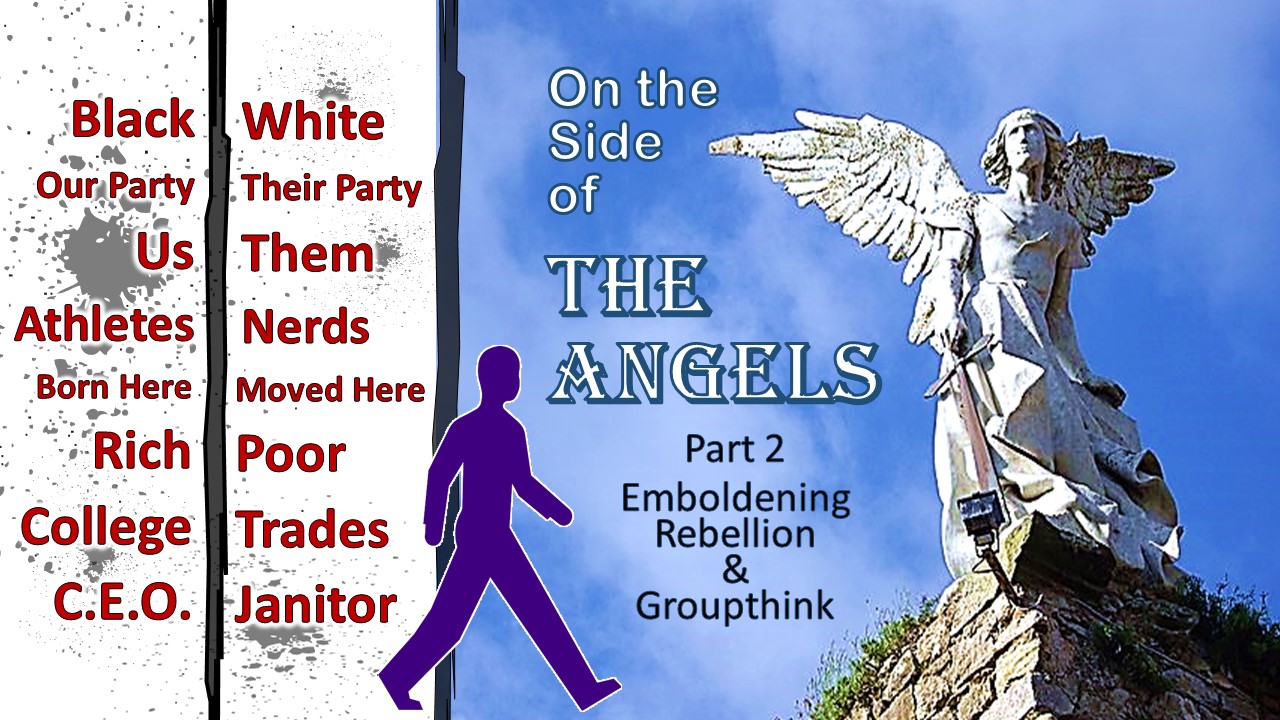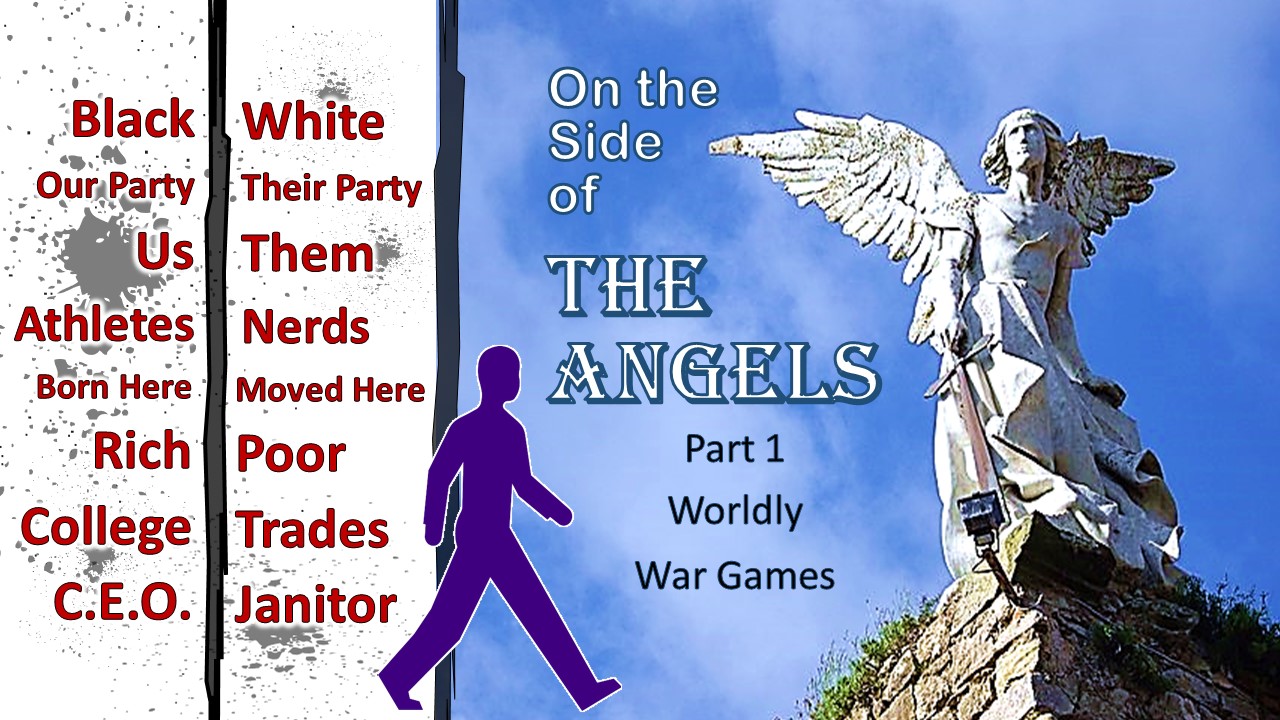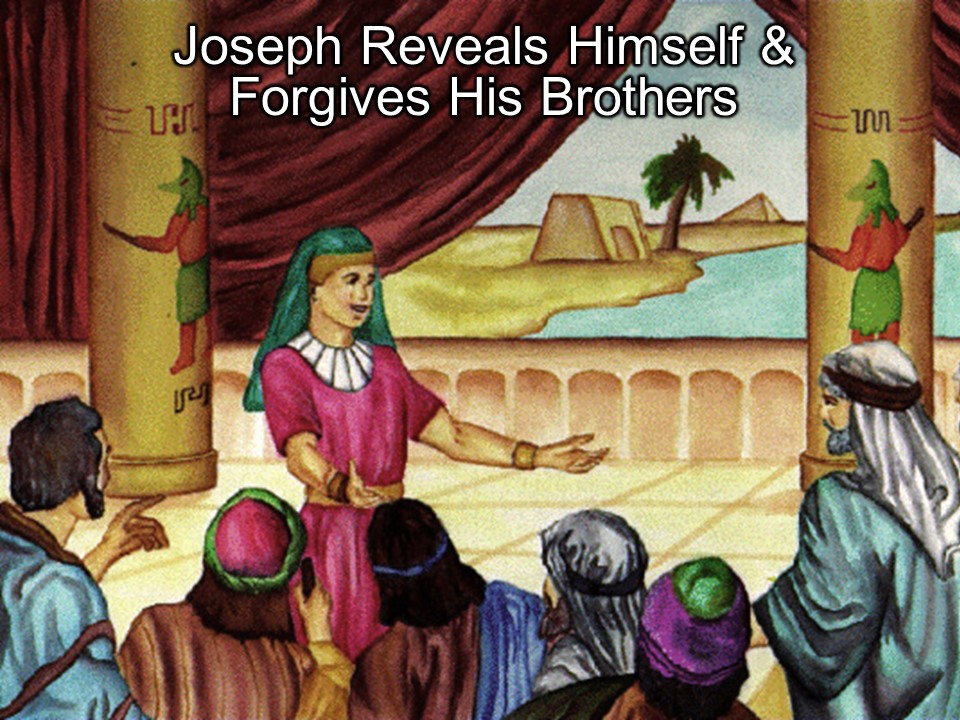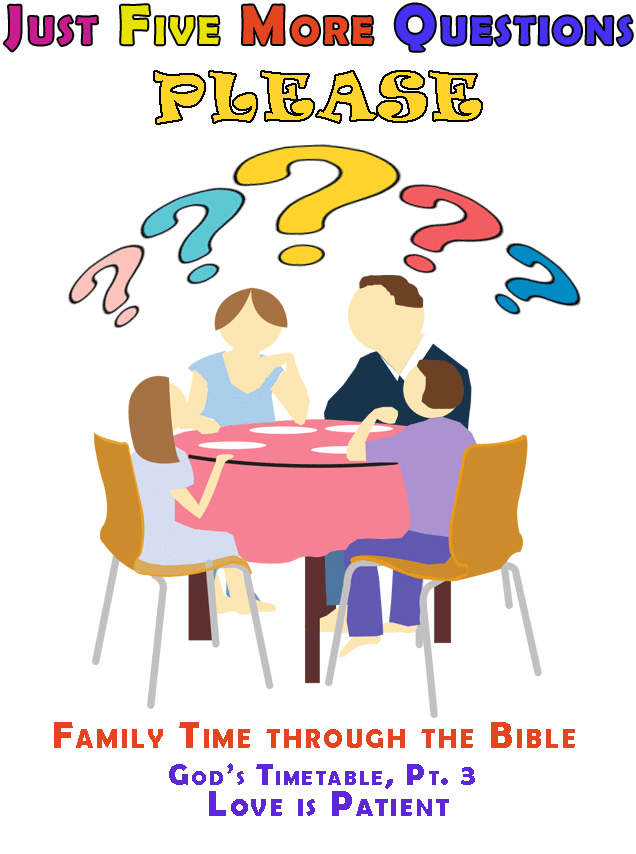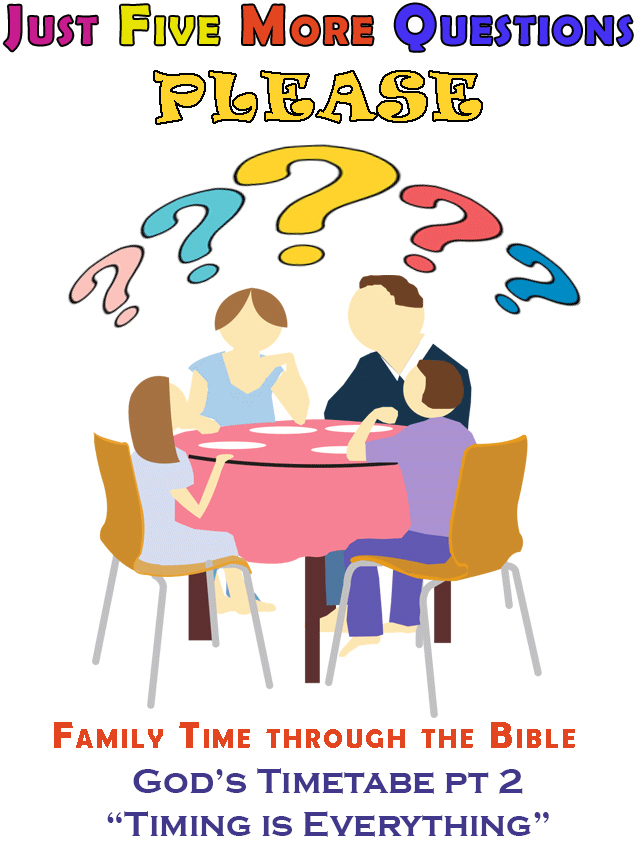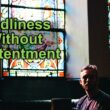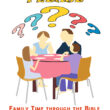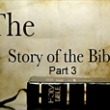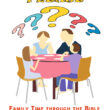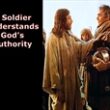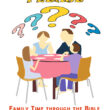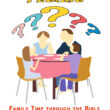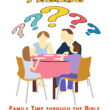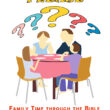Free PowerPoint Sermon: Don’t Be An Esau!
Preview this PowerPoint Sermon Here:
God Bless
More Free PowerPoint Sermons
Watch Our Service/Preaching Here
————————————————————
Don’t Be An Esau- Presentation Transcript
Previously, my wife Therese preached a sermon called, “Don’t be a Nimrod”
Today, our sermon is entitled,
“Don’t be an Esau.”
The book of Hebrews has something very interesting to say about Esau.
After reading this verse, I wondered: why Esau’s tears didn’t bring him true repentance.
I then wondered: what is true repentance, and what was Esau crying about?
But before we get into all that, let’s look at some of the crazy things your kids might cry about.
This kid tried to paint himself green and turn himself into the Hulk… didn’t work. He cried about it.
Maybe we do that sometimes: we try to paint ourselves as more important than we really are, and then cry when it doesn’t happen.
This kid couldn’t get his hands around all the crayons he wanted. He cried about it.
He wanted more than he could hold.
Even after we grow up, don’t we sometimes have a fit if we don’t get everything we want, and maybe cry about it?
This kid wanted to continue playing in the trash. She cried about it.
And this kid just didn’t want to come out of the toilet. And it made her cry.
And isn’t this how people are?
Just like these little kids, we might cry, when we’re told by anyone, including our loving Heavenly Father, that we need to get out of the toilet, and walk away from the trash.
And isn’t that what repentance REALLY is?
It’s growth, it’s change, it’s moving on.
Tears can be a good thing in the Kingdom of God.
When you or I feel sorry about our sins, it might make us cry.
But not all tears lead to real repentance: to growth, to change, to moving on.
With Esau: there was no growth, no change, no moving on. What’s that all about, Lord?
Guess what? The Lord gave me seven questions to find the answers to.
#1 Are the tears of a Christian always Godly?
#2 Can there be tears without repentance?
#3 Can there be repentance without tears?
#4 When we seek a place of repentance, do we always find it?
#5 Can I live the Christian life without repentance?
#6 What is the result
of my living an unrepentant Christian life… and will I care?
#7 What does all this mean for you, me and for the church in general?
So let’s find the answers together… in the Encyclopedia… NO!!… IN THE… BIBLE!
Let’s take a look at question #1.
#1 Are the tears of a Christian always Godly?
Psalms tells what the Lord listens for, in our cries, and what He looks for, in our tears.
He listens closely to our cries, but He knows the difference between God-centered and self-centered tears.
If we could send our tears to be analyzed in God’s chemical laboratory : You know: test tubes and beakers and bubbling stuff? What would our tears be made of?
Well, for me… probably a mix of 5-parts Godly, 5-parts selfish – and that’s on a good day!
Let’s admit it, we cry, we are sorry: for different reasons.
So, let’s see how God looks at sorrow:
This verse describes two kinds of sorrow:
The first brings us closer to God… the other makes us feel dead inside, distant and disconnected from God.
Tell Story of Job, filled with sorrow
Job
HIS LOSSES
HIS ACCUSERS
HIS INNER STRUGGLE
Job continued to struggle through the emotions of self-pity, anger, hopelessness and claims of innocence-as he argued with his accusers.
Self-pity: Job didn’t deserve all the losses in his life
Anger: Job felt God had turned against him
Hopelessness: Job felt he should never have been born
Claims of Innocence: Job was not the sinner his friends assumed he was
You know, tears can easily come from just feeling sorry for ourselves.
“Boo-hoo, the Lord doesn’t love me: because he doesn’t accept me on my terms.”
That was me, during a time of rebellion and depression that I went through. But God requires us to accept Him on His terms.
“Boo-hoo, the Lord doesn’t love me because he doesn’t accept me on my terms.”
I’m so grateful for the patience of the Lord through my own sins and failures as a Christian.
The only way I know, to really feel God’s grace: is through real repentance…
Not the “Boo-Hoo, I’m so sad.. I’m gonna go eat some dirt” attitude.
“Boo-Hoo, I’m so sad. I’m gonna go eat some dirt.”
OK, back to Job: Was Job a good person? Yes, by human standards. Even God said so, way back in chapter 1 of Job.
Did Job lose his blessings because he stopped being good? His accusers thought so. And Job cried tears of anguish and self-pity because He felt abandoned by his friends and by God.
Both Job and his accusers assumed that Job’s blessings were a result of Job’s goodness. Job was blessed, not because of his goodness. Our blessings come because of God’s goodness, not our own.
In his community, Job was, by all accounts, a very blessed man.
Land, cattle, houses, family and health
But… he was not righteous in his own right.
Like any of us, he was not perfect.
We might slip into thinking, like Job, “You know, I’m blessed, because of my goodness.” but… those blessings might disappear for a time.. And where are we then?
We find ourselves crying “foul” because of this wrong thinking.
When we suffer loss, we complain and protest to God, or to our accusers, based on this wrong thinking. We will not move on until we forget about our own goodness, and lean only, on the goodness of God
The Apostle Paul had the same struggle:
Rising above the temptation to defend myself, is one of my goals as a believer, but it is not one I have mastered, yet.
It helps to put things in perspective, when I read this verse:
In Him, In Him, in Him, In Him…I must keep repeating this to myself.
It’s not all about us, it’s all about HIM
So back to our first question:
Are the tears of a Christian always Godly?
Answer: No, there is worldly sorrow and Godly sorrow.
God knows the difference.
THIS BRINGS US TO OUR SECOND QUESTION:
#2 Can there be tears without repentance?
[TELL STORY OF PETER WHEN HE DENIED KNOWING JESUS]
. Be warned..
. Satan will try to sift you like wheat
. I’m ready to do anything for you, says Peter
. Today, before the rooster crows, you will deny me three times. And then it happened.
Peter felt shamefully guilty, and cried bitterly.
But tears, by themselves, will lead us nowhere. Tears alone, are no guarantee of repentance and growth.
The Israelites of the Old Testament times quite often cried bitterly at God’s altar.
They were very loud and expressive in the show of their religion.
But, once they got back home:
their day-to-day behavior, revealed the real condition of their hearts. In church they weren’t being real, and God did not look forward to their services, their worship or even their tears.
What about Peter?
Peter’s tears and his declarations of love and loyalty were not enough, in and of themselves.
Jesus asked Him three times, “Peter, do you love me?” And Peter repeated three times, “Lord, you know I love you.”
But the conversation didn’t end there. After each, “Lord, you know I love you,” Jesus responded, “Then feed my sheep”
The lesson here, reveals a somewhat embarrasing truth: We can cry and proclaim our love for Jesus on our knees, but what he is looking for, is what we do when we get back on our feet.
How Genuine is Our Sorrow for Sin?
Peter cried, and then he changed his life.
This is what true repentance looks like.
So, in answer, to our second question:
Can there be tears without repentance?
Answer: Yes, there can be tears, without true repentance.
OUR THIRD QUESTION ASKS THIS :
#3 Can there be repentance without tears?
Billy Graham, in one of his daily devotions,
shares this:
“There is a certain amount of sorrow involved in repentance that we don’t see much of today. That word means moaning and even groaning. I don’t mean that we have to have, a great emotional experience, but I do believe that we need some tears of repentance. We need to be sorry for our sins, and to say, “Oh, God, I have sinned against You, and I’m sorry….”
Billy Graham goes on to say,
“…I am not an emotional person. I don’t know why, but I don’t cry easily. But of the few times I have cried in my life, some of them have been over sin that I committed many years ago.
The night I came to Christ, I didn’t have any tears. But later I went home and I looked out my window at the North Carolina sky and I cried over my sins. I said, “Oh, God, forgive me.” And the most wonderful peace swept over my soul. From that moment on, I’ve known that my sins were forgiven.” [Do you have that peace?]
Two examples in scripture:
Zech Chapter 12 tells the
story of Israel’s final victory over all its enemies as Jerusalem is finally redeemed, and then, soon after, looking at their Messiah and King, they realize that He is the very One whom they had pierced, the Crucified Christ. And the entire nation of Israel goes into mourning and deep repentance upon that awful realization.
Gospel of John chapter 20
Doubting Thomas overcomes his doubts:
Thomas had his doubts. You could be a secret “Doubting Thomas” even as a Christian, waiting for some miraculous event to flash before you and erase all your doubts. I declare to you, from my own life , and that of countless believers who love the Lord, that the day you touch and are touched, by the nail-scarred hands and wound in the side of our living savior, on that day your heart will be full, and you will proclaim, “My Lord and my God.”
Put your hand in the hand of the man
Who stilled the water
Put your hand in the hand of the man
Who calmed the sea
Take a look at yourself
And you can look at others differently
Put your hand in the hand of the man
From Galilee
Salvation comes with joy and a wonderful new life.
And it may take some time, but eventually, the tears will come. When we get to touch and be touched by the One whom we have pierced, the tears will come. When we get to know what our sins have cost Him, the tears will come.
A portion of the scripture found in John 12:21, can be found in a church somewhere, taped to the pulpit, just above where the pastor lays his sermon notes and serves as a reminder to himself each time he preaches to his congregation. It reads,
“Sir, we want to see Jesus.”
When we see Jesus, when we see our Savior, when we see His cross, when we see His sacrifice, when we see Jesus,
the tears will come.
Can there be repentance without tears?
Answer: It’s complicated
FOURTH QUESTION:
When we seek a place of repentance, do we always find it?
#4 When we seek a place of repentance, do we always find it?
Back to Esau one more time…
Again, and again, scripture teaches that we shall find God, “when we seek Him with our whole heart.”
We must conclude that Esau was not wholeheartedly seeking his place of repentance.
We’re all familiar with the condition of half-heartedness:
Every once in a while, I’ll hear a sermon that makes me squirm in my seat, because it’s hitting the mark.
The word of God is revealing some half-hearted part of me, that I’d like to ignore.
It takes some bare-knuckle honesty and courage to stop side-stepping whatever God wants me to own up to.
I need to just to stand there and take it, but that’s so hard to do.
David in Psalm 139 summed up this feeling in the 3 verses: [you can recite them out loud with me if you like]
A very long poem entitled, “The Hound of Heaven” speaks of the ever-persistent nature of God, striving to bring us to a place of honesty and humility.
I have felt at times that the Lord was like a bloodhound, hunting me down.
Try as I could, to run, hide, disguise myself as an “OK” Christian, His Spirit kept chasing after me the heavenly hound from whom there is no escape.
I, for one, am glad when I finally run out of steam, and He catches up with me.
I may be miserable for a while, but the running is over and only then can the healing begin.
“I, for one, am glad when I finally run out of steam, and He catches up with me.”
Question #4 was: When we seek a place of repentance, do we always find it?
The answer is: Only if we seek it with our whole heart.
Do we always find the repentance?
If we seek it with our whole heart.
QUESTION NUMBER 5
Can I live the Christian life without repentance, or rather: any more repenting?
My knee-jerk answer to this: “I wouldn’t bet on it.”
Two verses come to mind:
5# Can I live the Christian life without repentance?
Being a slave to sin leads to death.
Choosing to obey God,
leads to righteous living.
So, I’m back to my original knee-jerk response: “I wouldn’t bet on it” [Warning:]
If you are fantasizing, committing sin as a Christian, you are already in place of dangerous deception and need to take an immediate step back toward the Lord.
Find a trusted fellow Christian to confess to and pray with don’t go it alone and please don’t put off this warning.
Everybody: remember this little trick:
The words: Secret, Sin, Stupid and Suicide… all begin with the letter “S”.
Make up any sentence with those words in it, and it will always come out the same!
So, in answer to our question: Can I live the Christian life without repentance?
The answer is: Secret sin is stupid suicide!
Can I live the Christian life without repentance?
Answer: Sin will surely enslave you.
THIS LEADS IN TO QUESTION 6:
What is the result of my living an unrepentant Christian life… and: will I care?
#6 What is the result
of my living an unrepentant Christian life… and will I care?
A little history lesson:
The nation of Israel had been living in a backslidden condition.
They were far from God in their spiritual lives. Ezekiel was God’s prophet at this time.
So, God does something we might think is horrible.
He allows Ezekiel’s wife to die, but commands Ezekiel to act like nothing has happened, to just go on with his life, without missing a beat.
The people are dumfounded, by Ezekiel’s seeming unfeeling behavior toward someone he was supposed to have loved.
He doesn’t even talk about it with anyone!
They cannot understand how he can be this way. And this goes on for some time.
Finally, God lets Ezekiel tell the people what God thinks of Israel’s hard-hearted attitude toward the One they should have loved.
Just as Ezekiel “seemed” to have no care for the loss of his beloved wife…
Just as he “seemed” to go about as if nothing had happened, as if nobody had died…
…acting as if he never loved her anyway…
This is how the Israelites were acting about their dying relationship with God…
As if nothing had happened… as if they never loved Him anyway!!!
Now, back to our question:
“What is the result of our living an unrepentant Christian life… and: will we care?”
Answer: No, we won’t, we will “waste away because of our sins.”
And if the scripture holds true, like the children of Israel, “We won’t much care.”
Esau didn’t much care. Oh, he was upset for a while about the birthright he lost… up until the next bowl of stew filled his belly.
What is the result
of my living an unrepentant Christian life… and will I care?
Answer: I will waste away and begin feeling nothing for Jesus.
WHICH BRINGS US TO CONCLUDING QUESTION:
What does all this mean for you, me and the church in general?
#7 What does all this mean for you, me and for the church in general?
Let’s get back to our leading man: Esau!
From his story, we learned a lot about tears and repentance.
But what is the root of Esau’s problem? What was missing in his life?
To understand this, I want share something personal.
The other day I was talking with my wife, Therese, and she shared a story from her childhood.
As a child, Therese loved to dance. When she was about eight or nine years old, she asked her father if she could enroll in dance classes.
He responded by saying she could attend classes if she were able to stand up on her toes, one leg at a time.
She easily stood on the toes of her left leg, but when she tried to do the same with her right leg she simply couldn’t!
The effects of having had polio when Therese was 3 years old, left her with a severely weakened calf muscle in her right leg.
Her father showed Therese in a seemingly cruel manner, that dance classes might not be a possibility.
She felt crushed and, for an eight-year-old, it was a painful disappointment.
Recalling that time in her life, my wife acknowledged that perhaps, just perhaps, God had allowed her get polio, to save her from going in a direction that might have led her away from His calling on her life and even her salvation.
She looks back on the whole situation, with, what I call: an eternal viewpoint.
God wants each of us to have:
an eternal viewpoint.
The root of Esau’s problem was that he didn’t. All he could see was that bowl of stew, which would satisfy him, for the time being.
But he forsook his inheritance, which was supposed to be his, by rights: his birthright.
Afterward he couldn’t find a place of repentance because he didn’t have an eternal viewpoint. All he could do was cry in his soup.
As sons and daughters of God we have an inheritance that we must not neglect.
Our lives may be filled with all sorts of stuff that satisfies us: for the time being.
Remember, they’re just bowls of stew.
Having an eternal viewpoint doesn’t mean we never make mistakes, but it helps us
recognize that bowl of stew, which is just a metaphor, for anything that gets in the way of our walk with the Lord.
It could be physical hunger, like Esau.
It could be a hunger for attention, celebrity, acceptance, to be attractive, strong, envied.
It could be a weakness for anger, resentment, vengeance.
It could be an appetite for power, money, or the material things money can buy.
Let’s view all these things, for what they really are measly bowls of earthly stew.
Don’t be an Esau: Have an eternal Viewpoint.
What does all this mean for you, me and for the church in general?
Answer: All that the world offers is not worth pursuing or even caring about. We need an eternal viewpoint!










